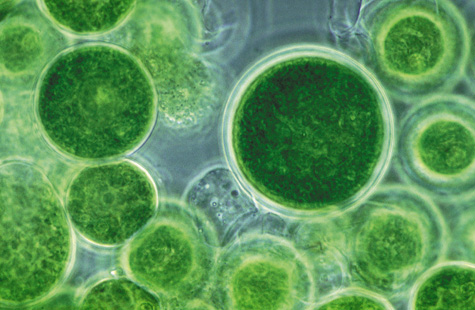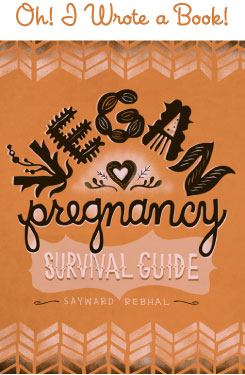By now we’ve all heard of the ‘amazing omegas’, those fantastic fatty acids that have all the scientists and supplement-makers squawking. We’ve been introduced to ‘good fats’ and lectured about the naughty ones and sold on all sorts of ‘superfoods’. And if one more person tries to tell me how healthy fish is, I may just do something very un-vegan!
But truly, it’s a lot to try and make sense of. So I’ll do my best to lay it all out, in straightforward scientific terms. Here we go!
Essential Fatty Acids
There are certain nutrients the human body is unable to produce. These are termed ‘essential’, like the essential amino acids that make up proteins. The fatty acids that fall into this category are termed the essential fatty acids (EFAs). There are two main types of EFAs: omega-6 and omega-3. Both groups are required for normal bodily functioning and both groups must be obtained dietarily. These EFAs are used to regulate inflammation, adjust mood and behavior, affect cellular signaling, and more. They are also used as transcription factors that act on DNA.
Omega-6
Omega-6s are unsaturated fatty acids, which means they are not bound to additional hydrogen (as opposed to saturated fats which are ‘heavy’ with hydrogens). They are critical for a variety of functions. Omega-6 deficiency may manifest as dry hair or hair loss, eczema, or slow-to-heal wounds. However, there can also be ‘too much of a good thing’. Very high levels of omega-6 are correlated to heart attack and stroke, arthritis and other inflammatory diseases, depression and other mood disorders, obesity, and cancer.
The most prevalent dietary omega-6 is linoleic acid (LA). LA is commonly found in situ in the lipid by-layer of cells, where it plays a critical role in biochemical processes. At proper levels, LA may help prevent cancer, treat cystic fibrosis, and correct dermatitis. (1)
Omega-3
Omega-3s are also unsaturated fatty acids. There are three primary forms: alpha-linoleic acid (ALA), eicosapentaenoic acid (EPA) and docosahexaenoic acid (DHA). All of these are polyunsaturated fatty acids (PUFAs), which means there is more than one point where hydrogen could bond (so essentially, very unsaturated).
ALA is considered a short chain fatty acid, while EPA and DHA are both long chain fatty acids. These are EFAs and thus the body cannot produce them, though it can convert ALA into EPA and to a lesser extent DHA. Of all the essential fatty acids, EPA and DHA confer the greatest health benefits.
DHA is the most advantageous omega-3, and the FDA officially recognizes it’s importance in fighting cardiovascular disease. (2) Further, Canadian health officials state that DHA is important for developing the brain, nerves, and eyes. (3)
Omega-6 and Omega-3 In Action
Most scientists believe that the actual dosage of EFAs is less important than the ratio of omega-6 and omega-3. (4) This is because omega-6s (which can be detrimental in high doses) and omega-3s utilize the same enzymes for synthesis. It is thought that the ratio of LA (an omega-6) to ALA (an omega-3) is especially significant.
The omega-6 will compete with the omega-3 for the same limited enzyme. The single enzyme can catalyze multiple reactions (not simultaneously), resulting in different types of eicosanoids (hormones), depending on the omega involved. In the case of excessive omega-6, the rate of synthesis is greater than the rate of metabolism (you are processing more Omega-6 than you are using), and the extra hormones produced could be dangerous. These additional hormones are sometimes referred to as ‘pro-inflammatory agents’. The omega-3s EPA and DHA, on the other hand, form anti-inflammatory molecules.
The ideal ratio of omega-6 to omega-3 is somewhere in the neighborhood of 4:1, with 4 parts omega-6 to 1 part omega-3. Unfortunately, the standard American diet (SAD) typically includes a ratio closer to 10:1.
It should be noted that recent research contradicts this belief, indicating that it is the definite amount of EFAs, and not the ratio, that matters most. (5) (6) (7)
EPA and DHA
The long chain omega-3 fatty acids are the ones that confer the greatest health benefits. Of these two, DHA is certainly the most ideal, though the virtues of both are identified in a number of studies.
DHA can increase circulation and reduce blood pressure. (8) EPA and DHA both play a significant role in reducing and preventing cardiovascular disease (9) (10) (11) (12) DHA levels are inversely proportional with breast cancer risks (13), although the link between DHA and cancer has not been sufficiently established. DHA also contributes to brain development and memory (14) including a protective effect in Alzheimer’s and Parkinson’s disease. (15)
The short chain fatty acid, ALA, has not been shown to share these same healthful properties. Of course, EPA and DHA can be synthesized from ALA, but this is much less efficient than a direct source of EPA/DHA.
The metabolic conversion of ALA into EPA and DHA is believed to be quite limited in humans, and varies from person to person. (16) In one study, lactating women who showed low levels of DHA in their breastmilk were given very high doses of ALA. Still, they never showed a significant increase of the DHA levels in their milk. (17) Research shows that the conversion rate of ALA to DHA is even lower in men (18)
Getting Your Omega-3s
In America there is no ‘recommended dietary allowance’ (RDA) for macronutrients, so Omega-3s, which are fats, do not have an RDA. There is an ‘acceptable intake’ (AI) of omega-3s, which is 1.6 grams per day for men and 1.1 grams/day for women. There is no current ‘upper tolerable limit’ (UL) for omega-3s.
However the International Society for the Study of Fatty Acids and Lipids offers a recommended daily intake for omega-3s. They suggest 3 grams of ALA per day for men and 2.5 grams of ALA per day for women. They also recommend 500 milligrams of EPA/DHA per day.
Coldwater oily fishes are the most popular source of these essential Omega-3s, which is why everyone seems so obsessed with fish and fish oil these days. But there are botanical (vegan, non-animal) sources of Omega-3s.
Flax oil, sometimes called linseed oil, has a huge load of ALA – 55% composition – which is six time more than fish oil. Chia seed oil is similar in makeup. These two also have a good ratio of omega-6 to omega-3, which is equally as important. Flax and Chia have three times more omega-3 than omega-6.
Other plant foods high in ALA include Butternuts (‘white walnuts’, not the squash), hempseeds and flaxseeds and chiaseeds, walnuts, pecans, hazelnuts, and acai fruit.
But remember that ALA is not efficiently converted into EPA and DHA, and these are the fatty acids that are truly beneficial. For this reason it may not be enough to simply include ALA-rich food in one’s diet. For those that suspect they are low in omega-3′s, and especially growing children and those that are pregnant, breastfeeding, or immunocompromised, a direct EPA/DHA source is ideal.
EPA can be found in brown algae (kelp) oil. The only non-animal source of DHA is microalgae, most notably the species Crypthecodinium cohnii and Schizochytrium. Algal DHA is just as bioavailable and just as effective as the DHA from fish. (19) After all, where do you think the fish get it?! Veg*n EPA/DHA supplements are widely available in health food stores and online.
So, To Recap:
- The essential fatty acids, omega-6 and omega-3, are required components of a healthy diet.
- Omega-6s are good, necessary even, but have negative affects when present in excess.
- There are three omega-3s, ALA, EPA, and DHA. EPA and DHA play a critical role in many areas related to health. ALA does not.
- ALA can be converted to EPA and DHA, but this is often inefficient. It’s better to take a direct source from microalgae.
- You do not need to eat fish or fish oil!
-
http://kpapoulias.blogspot.com/ Kathryn
-
Tenise Rae
-
April
-
Leah
-
Kelley
-
Minna
-
Sandi Gulin
-
Leah
-
IngaG
-
mariztela
-
Leslie
-
Leslie
-
Leslie
-
Misa
-
Chaya Kurtz
-
http://bonzaiaphrodite.com/ Sayward Rebhal
-
Sarah
-
Violet
-
http://bonzaiaphrodite.com/ Sayward Rebhal





